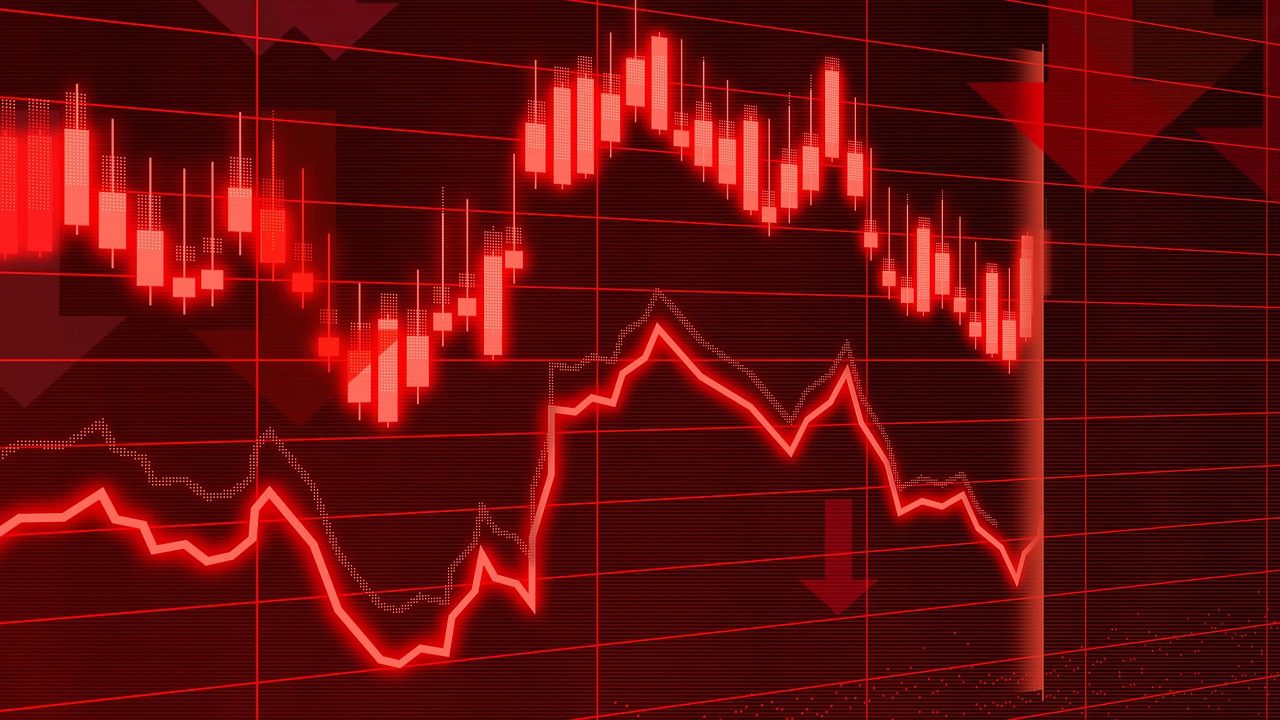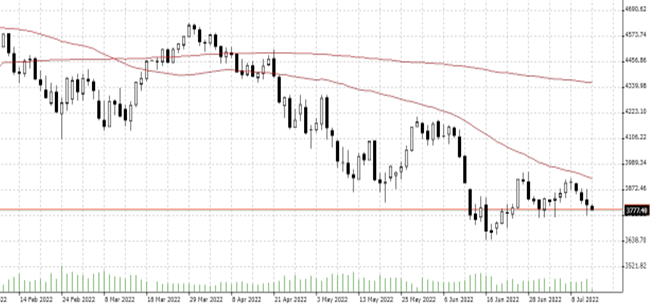

14.07.2022 – An air of panic is sweeping Wall Street: a tsunami of downgrades is building up. The fear of recession is spreading. No wonder: Just in time for the start of the reporting season, new horror figures have arrived from the US economy. The inflation rate has risen again and now stands at 9.1 percent.

Source: Bernstein Bank GmbH
Reassessment ahead: Inflation in the USA rose once again – from 8.6 percent in May. The current 9.1 percent is the highest level since December 1981. Most analysts had expected only 8.8 percent. A bad omen for the earning season now beginning. The outlooks of the companies will be particularly interesting this time – they could put a bitter damper on the share prices. The market is obviously preparing for a downturn – you can tell how bad the mood is by the fact that the SPX in the daily chart is below the 50 level and far away from the 200 line.
Goldman Sachs, by the way, sees the S&P 500 plummeting to 3,150 points in the event of a recession. In any case, according to Goldman trader John Flood, high inflation will ensure that money from large institutional investors remains frozen in bank accounts.
500 downgrades in five days
The expert further commented that fear dominates the conversations with clients – the market is therefore worried about a wave of corrections in profit expectations. And, of course, accompanied by a reduction in price targets across the board. It looks like this recession wave of analysts has already started: “Sell-side analysts are scrambling to get ahead of Q2 earnings; over the last 5 days they’ve downgraded more than 500 names (on a net basis). Since the Financial Crisis, there’s only been 4 other weeks when that many names have been downgraded that quickly.” As far as Goldman trader Flood.
Possible crash ahead
A few days ago, Goldman Sachs analysts took a look at 77 recessions around the globe since 1961. The conclusion of Goldman expert Chris Hussey: The world could currently be on the threshold of a serious, severe recession. According to the report, the risk of this happening next year is 30 percent in the United States, 40 percent in the euro zone and 45 percent in the United Kingdom.
Threat of 100 interest rate hike
Of little help to the bulls, therefore, is the whispering around about a 100 basis point rate hike by the Federal Reserve. Indeed, Atlanta Fed chief Raphael Bostic signaled that was possible: “Everything is in play.” Shortly before, investment bank Nomura had speculated about a 100 rate move. Previously, the market had assumed 75. Whether raising interest rates will stop the recession is questionable, because inflation currently comes mainly from energy and food. Rather, pumping money out could add fuel to the recession’s fire.
Our conclusion: the big weather for the stock market looks like a storm. In between, however, there will always be tradable recoveries for traders as expectations about big interest rate moves or the threat of recession turn. Bernstein Bank wishes successful trades and investments!
Important Notes on This Publication:
The content of this publication is for general information purposes only. In this context, it is neither an individual investment recommendation or advice nor an offer to purchase or sell securities or other financial products. The content in question and all the information contained therein do not in any way replace individual investor- or investment-oriented advice. No reliable forecast or indication for the future is possible with respect to any presentation or information on the present or past performance of the relevant underlying assets. All information and data presented in this publication are based on reliable sources. However, Bernstein Bank does not guarantee that the information and data contained in this publication is up-to-date, correct and complete. Securities traded on the financial markets are subject to price fluctuations. A contract for difference (CFD) is also a financial instrument with leverage effect. Against this backdrop, CFD trading involves a high risk up to the point of total loss and may not be suitable for all investors. Therefore, make sure that you have fully understood all the correlating risks. If necessary, ask for independent advice. CFDs are complex instruments and are associated with the high risk of losing money quickly because of the leverage effect. 68% of retail investor accounts lose money trading CFD with this provider. You should consider whether you understand how CFD work and whether you can afford to take the high risk of losing your money.7
